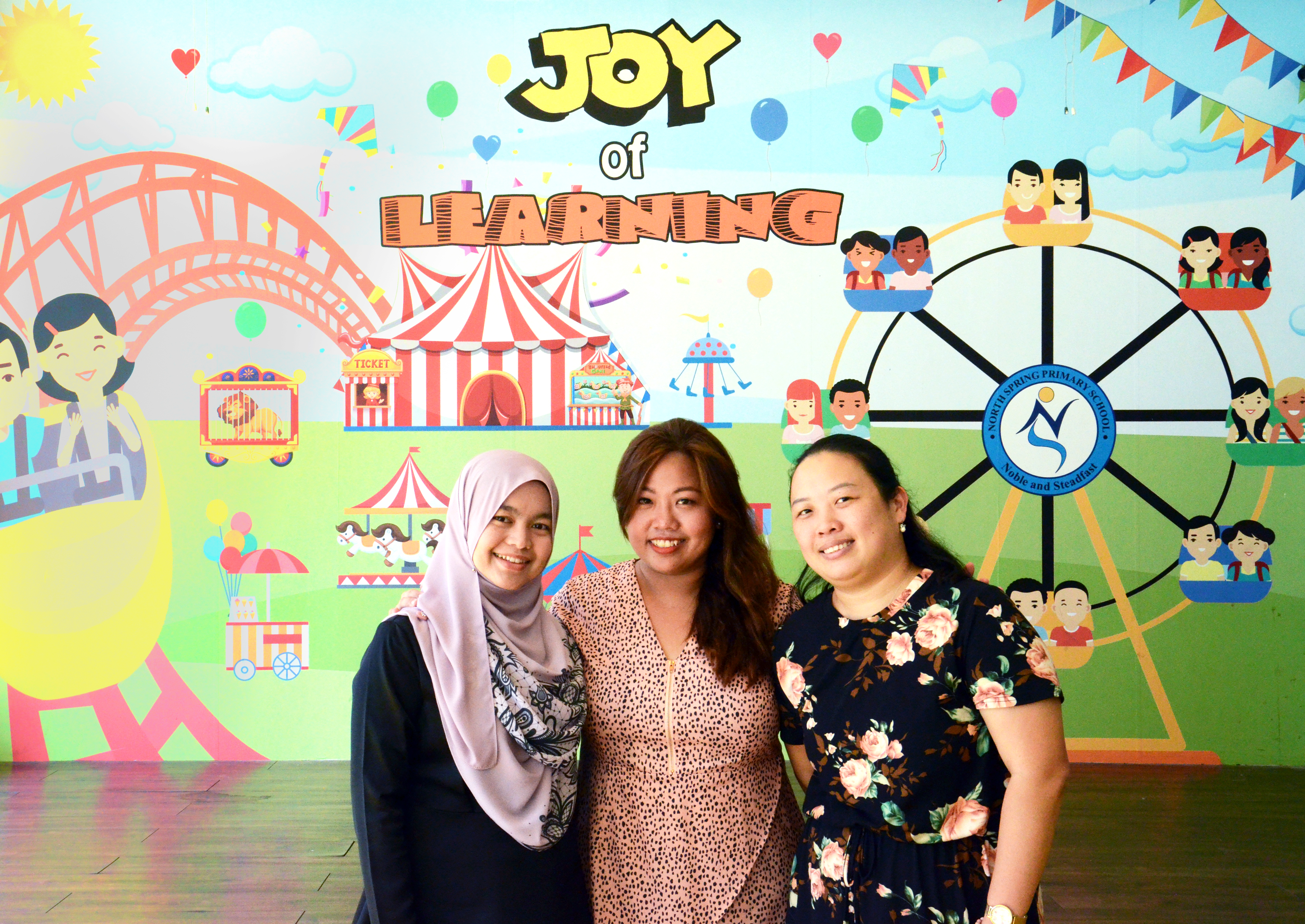Young Children’s Voices in Mathematical Problem Solving
Contributed by Dr Ho Siew Yin and Sng Wei Qin Abbie, from NTUC First Campus, for SingTeach Virtual […]
Read More
In 2018, North Spring Primary School and Elias Park Primary School collaborated with NIE researchers on a project involving lower-progress students in Math. One of the key aims of this ongoing study is the translation of basic neuroscience research into effective classroom interventions. Two teachers from the schools share with us their experience of implementing games in the Math syllabus as a way to level up the numeracy skills in this group of students.
As teachers in-charge of the Learning Support for Math (LSM) programme, Mdm Joyce Ye from North Spring Primary School and Mdm Iza Mariah from Elias Park Primary School were keen to participate in the project to gain better insights on how educational neuroscience can help address the challenges of teaching and learning Math.
“Many lower-progress learners struggle with making sense of complex math concepts as they move up from one level to another. We felt that embarking on this project might help us uncover new pedagogies that can alleviate the level of Math anxiety,” Iza says.
Sharing her observations, Joyce adds that many of these students struggle to retain information. “We were curious to find out how brains work when students learn Math. We hope that by participating in this study, it can shed light on innovative learning strategies that can help students to achieve better learning outcomes in Math.”

(From left) Iza, Jesslyn and Joyce implement neural-informed game-based interventions in their schools’ LSM classroom
A key aspect of this project involves implementing neural-informed game-based interventions in the LSM classroom. Physical and digital games have been developed to suit the learning needs and abilities of this group of students.
Adopting a targeted approach, Iza and Joyce are selective when it comes to choosing which math topic will have a games element to it. “Not every topic in the Math syllabus will be accompanied by games,” Iza explains. “Due to several constraints, we are strategic in choosing topics that we think the games will have the most impact on learners.”
Since the inception of the project, several math topics such as multiplication tables and place value of numbers have been partly taught through games. Mdm Jesslyn Goh, Head of Mathematics Department at North Spring Primary School shares, “For Primary 1 and 2 students, the learning of place values are reinforced through the playing of number games. For Primary 3 and 4 students, Bingo games are used to aid the learning of multiplication tables.”
Apart from using math-based games to reinforce what the students have learnt earlier, both schools also use them as a form of formative assessment. Iza adds that she uses them to introduce students to a new math topic.
Taking a step back from the conventional pen-and-paper route has given the teachers a fresh perspective in looking at new ways to engage LSM students. Playing number games on iPads, for example, is a boon for students who have issues with fine motor skills as they can easily answer questions with just a swipe of the fingers.
Joyce shares, “Participating in the math-based hands-on activities and digital games becomes a physical and visual treat for them. They get excited when they score a point and are more motivated to try another question. They will then compare their scores with their peers. This mode of competition actually builds up their confidence.”
Agreeing, Iza adds that the instant gratification the students get from playing these games helps them in self-directed learning. “These math games encourage them to attempt answering questions and find solutions independently. When they realize that success is within their reach, they want to continue reinforcing that loop of success without needing much prompt from teachers.”
Jesslyn notes that adapting games into the Math intervention programme has equipped the teachers with a wider repertoire of teaching tools to meet the different learning needs of students.
“These math games encourage [the students] to attempt answering questions and find solutions independently. When they realize that success is within their reach, they want to continue reinforcing that loop of success without needing much prompt from teachers.”
– Iza, on how the games encourage students in self-directed learning
Working with lower-progress students in the LSM programme comes with its unique set of challenges. Iza and Joyce highlight two critical issues – chronic absenteeism and lack of family support – that impede their intervention efforts.
“The lack of parental involvement and availability of resources such as computers and Internet access in the home mean that the children cannot learn within a consistent and holistic environment,” Iza shares.
“Their absenteeism, a contributing factor in low academic performance, also poses a logistical challenge. It can be quite difficult to get them to be in the same room with the researchers which may, in turn, affect the collection of data for the project,” Joyce adds.
While taking these challenges in stride, they are also confident that the research findings can pave the way for changing how Math is taught and learnt in these group of students. With concrete data and evidence, they say, it will be easier to change teachers’ beliefs and mode of teaching.
“The research outcome has the potential to deepen teachers’ and stakeholders’ understanding of how lower-progress learners learn Math and perhaps bring about shifts in the way teachers engage them,” says Joyce.
Furthermore, Iza adds that the research findings can benefit not only lower-progress learners, but those of average ability as well. “I believe we can do more to level up the math proficiency of average learners too. This research can be a strong advocate for teachers and educators to reflect on their current teaching and learning approaches, and see what can be changed such that learning is maximized for all learners.”
This research / project is supported by the National Research Foundation (NRF), Singapore, under its Science of Learning Initiative (NRF2016-SOL002-003).